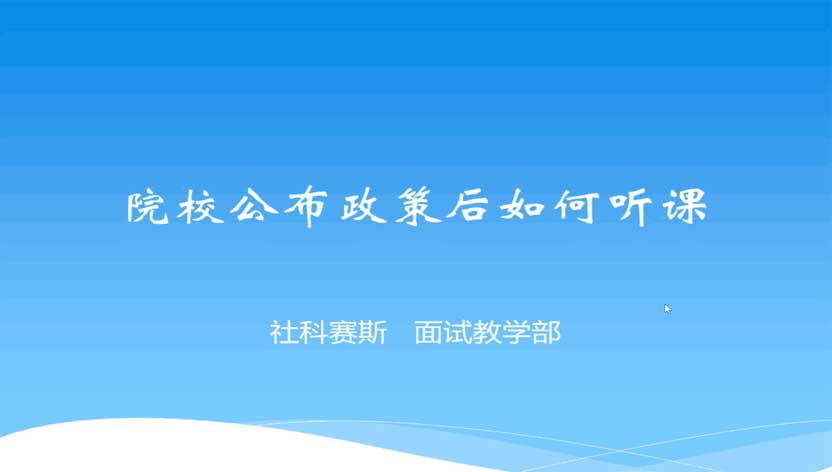2025MBA报考测评申请中......
说明:您只需填写姓名和电话即可免费预约!也可以通过拨打热线免费预约
我们的工作人员会在最短时间内给予您活动安排回复。
导读:
Section I Use of English
Directions:
Read the following text. Choose the best word(s) for each numbered blank and mark A, B, C or D on ANSWER SHEET. (10 points)
Thinner isn’t always better. A number of studies have __1___ that normal-weight people are in fact at higher risk of some diseases compared to those who are overweight. And there are health conditions for which being overweight is actually ___2___. For example, heavier women are less likely to develop calcium deficiency than thin women. ___3___ among the elderly, being somewhat overweight is often an ___4___ of good health.
Of even greater ___5___ is the fact that obesity turns out to be very difficult to define. It is often defined ___6___ body mass index, or BMI. BMI ___7__ body mass divided by the square of height. An adult with a BMI of 18 to 25 is often considered to be normal weight. Between 25 and 30 is overweight. And over 30 is considered obese. Obesity, ___8___,can be divided into moderately obese, severely obese, and very severely obese.
While such numerical standards seem 9 , they are not. Obesity is probably less a matter of weight than body fat. Some people with a high BMI are in fact extremely fit, 10 others with a low BMI may be in poor 11 .For example, many collegiate and professional football players 12 as obese, though their percentage body fat is low. Conversely, someone with a small frame may have high body fat but a 13 BMI.
Today we have a(an) _14 _ to label obesity as a disgrace.The overweight are sometimes_15_in the media with their faces covered. Stereotypes _16_ with obesity include laziness, lack of will power,and lower prospects for success.Teachers,employers,and health professionals have been shown to harbor biases against the obese. _17_very young children tend to look down on the overweight, and teasing about body build has long been a problem in schools.
1. [A] denied [B] conduced [C] doubled [D] ensured
2. [A] protective [B] dangerous [C] sufficient [D]troublesome
3. [A] Instead [B] However [C] Likewise [D] Therefore
4. [A] indicator [B] objective [C] origin [D] example
5. [A] impact [B] relevance [C] assistance [D] concern
6. [A] in terms of [B] in case of [C] in favor of [D] in of
7. [A] measures [B] determines [C] equals [D] modifies
8. [A] in essence [B] in contrast [C] in turn [D] in part
9. [A] complicated [B] conservative [C] variable [D] straightforward
10. [A] so [B] unlike [C] since [D] unless
11. [A] shape [B] spirit [C] balance [D] taste
12. [A] start [B] quality [C] retire [D] stay
13. [A] strange [B] changeable [C] normal [D] constant
14. [A] option [B] reason [C] opportunity [D] tendency
15. [A] employed [B] pictured [C] imitated [D] monitored
16. [A] [B] combined [C] settled [D] associated
17. [A] Even [B] Still [C] Yet [D] Only
18. [A] despised [B] corrected [C] ignored [D] grounded
19. [A] discussions [B] busin[FS:PAGE]esses [C] policies [D] studies
20. [A] for [B] against [C] with [D] without
Section II Reading Comprehension
Part A
Directions:
Read the following four texts. Answer the questions below each text by choosing A, B, C or D. Mark your answers on ANSWER SHEET. (40 points)
Text 1
What would you do with 590m? This is now a question for Gloria Mackenzie, an 84-year-old widow who recently emerged from her small, tin-roofed house in Florida to collect the biggest undivided lottery jackpot in history. If she hopes her new-found for tune will yield lasting feelings of fulfillment, she could do worse than read Happy Money by Elizabeth Dumn and Michael Norton.
These two academics use an array of behavioral research to show that the most rewarding ways to spend money can be counterintuitive. Fantasies of great wealth often involve visions of fancy cars and extravagant homes. Yet satisfaction with these material purchases wears off fairly quickly what was once exciting and new becomes old-hat; regret creeps in. It is far better to spend money on experiences, say Ms Dumn and Mr Norton, like interesting trips, unique meals or even going to the cinema. These purchases often become more valuable with time-as stories or memories-particularly if they involve feeling more connected to others.
This slim volume is packed with tips to help wage slaves as well as lottery winners get the most "happiness bang for your buck." It seems most people would be better off if they could shorten their commutes to work, spend more time with friends and family and less of it watching television (something the average American spends a whopping two months a year doing, and is hardly jollier for it).Buying gifts or giving to charity is often more pleasurable than purchasing things for oneself, and luxuries are most enjoyable when they are consumed sparingly. This is apparently the reason MacDonald's restricts the availability of its popular McRib - a marketing trick that has turned the pork sandwich into an object of obsession.
Readers of “HappyMoney” are clearly a privileged lot, anxious about fulfillment, not hunger.Money may not quite buy happiness, but people in wealthier countries are generally happier than those in poor ones. Yet the link between feeling good and spending money on others can be seen among rich and poor people around the world, and scarcity enhances the pleasure of most things for most people. Not everyone will agree with the authors’ policy ideas, which range from mandating more holiday time to reducing tax incentives for American homebuyers. But most people will come away from this book believing it was money well spent.
21. According to Dumn and Norton,which of the following is the most rewarding purchase?
[A]A big house
[B]A special tour
[C]A stylish car
[D]A rich meal
22. The author’s attitude toward Americans’ watching TV is
[A]critical
[B]supportive
[C]sym[FS:PAGE]pathetic
[D]ambiguous
23. Macrib is mentioned in paragraph 3 to show that
[A]consumers are sometimes irrational
[B]popularity usually comes after quality
[C]marketing tricks are after effective
[D]rarity generally increases pleasure
24. According to the last paragraph,Happy Money
[A]has left much room for readers’criticism
[B]may prove to be a worthwhile purchase
[C]has predicted a wider income gap in the us
[D]may give its readers a sense of achievement
25. This text mainly discusses how to
[A]balance feeling good and spending money
[B]spend large sums of money won in lotteries
[C]obtain lasting satisfaction from money spent
[D]become more reasonable in spending on luxuries
Text 2
An article in Scientific America has pointed out that empirical research says that, actually, you think you’re more beautiful than you are. We have a deep-seated need to feel good about ourselves and we naturally employ a number of self-enhancing strategies to research into what the call the “above average effect”, or “illusory superiority”, and shown that, for example, 70% of us rate ourselves as above average in leadership, 93% in driving and 85% at getting on well with others―all obviously statistical impossibilities.
We rose tint our memories and put ourselves into self-affirming situations. We become defensive when criticized, and apply negative stereotypes to others to boost our own esteem, we stalk around thinking we’re hot stu













